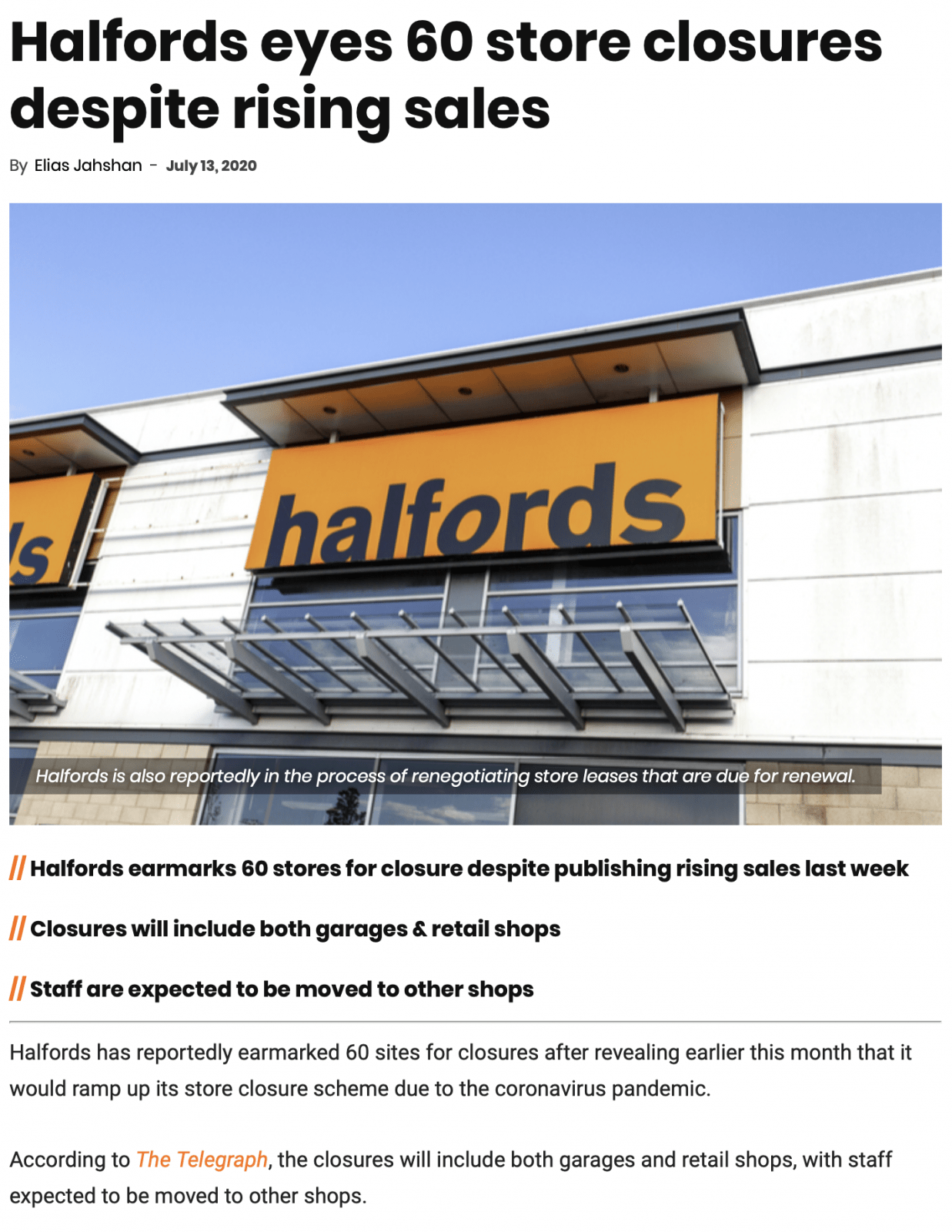have you ever met anyone in marketing that admits the failure of the company they were working at was their fault? It seems as if some anonymous individual is to blame, while the rest never saw it coming. To be fair is is easy to be complacent during the good times, but only the best are prepared for those rainy days, or better still, knowing how to instigate a recovery when the dark clouds have gathered.
The announcement of an imminent recessions is the day
all ecommerce retailers need to prepare for.
What really happens when a web known name goes bust? What journalists don’t feature are the families destroyed too, not just the owners but the staff too, as they scramble to make-ends meet until they have a secure income again. But even then their old friends and colleagues are gone, and the new regime will have a different way of working. In their darkest hours you don’t hear about homes being repossessed, marriages destroyed etc – with a domino effect.
It is sometimes worse for suppliers, many try to help an old friend, with confidence of old and belief in their historic ability – it worked before, of course it will again. Oops! Suppliers get suckered into perpetual supply as if that retailer will be able to honour their kindness.
What chance when the receivers take it all? Then the ominous circle closes in, under the smiling guise of entrepreneurs or self-interested investors. All too often they are asset strippers and their sole intention is to perpetuate their own ends – a different business model indeed.
Like it or not there are employees who cause companies to go to the wall. High on this list are those that fail to adapt to change, those (usually the ones who never take kindly to be approached to be sold something new), whose arrogance eventually costs themselves and everyone around them destruction. The “you can’t teach me anything son” types.
You see it every day, the ones who say “I don’t know you, I don’t know your product, I don’t know what it does, and my time is too precious find out”. Sadly they are usually the ones first in the queue at the recruitment consultants the next day, with a high plausible sob story of how it was everyone else’s fault their company went to the wall, but not theirs.
Sadly some are so prolifically bad you could almost trace their careers through the London Gazette of liquidations.
There is a long list of companies that have gone to the wall in the last few years (see here), that makes sad reading. We all feel an unusual warmth towards some of these companies, and the depth and degree of that emotion, reflect the profits that will never now be secured.

Carpe diem
It will come as no surprise to those who have lived through previous recessions, from the chaos of their crisis will fall into two distinct groups: the winners and losers.
Those that come out stronger, leaner, market-ready, keen to build, achieve and succeed. Then there will be those that are desperately trying to survive, hanging-on-in-there, but for the grace of others – nervous shareholders usually. The two groups are documented in many places recently, including Sanlam, Argus and Forbes.
So what to do about it.
Things to avoid
Panic. The medico’s entreaty, “first, do no harm”, comes into play here. When folks are financially crashing, they naturally tend to panic and try to do something immediately even if that later proves to be a really bad idea.
Creditor rights attorneys call these folks “desperate debtors” because they will try to do a bunch of things that they think makes their situation better, when in fact they are just digging themselves a deeper hole. Activity for its own sake is not a plan. Instead, you must calm yourself and approach these tough issues objectively and with a clear head.
Jeapordizing Your Discharge. Ultimately, many debtors may need to seek bankruptcy relief and attempt to obtain a discharge of their debts. While most folks will qualify for a discharge, there are always a certain number of folks who disqualify themselves from getting a discharge. For instance, if a person makes a fraudulent transfer in the year preceding the date they filed for bankruptcy, they will be denied a discharge under Bankruptcy laws.
The Courts typically sort out “good debtors” who don’t try to cheat their creditors and follow the rules, from “bad debtors” who do take steps to defeat their creditors and don’t follow the rules. Word of advice: If you are going to attempt to engage in pre-bankruptcy planning, to the extent that such a thing even exists these days, then do get a truly independent second opinion from a bankruptcy lawyer about whatever actions are being taken. Note that the loss of a discharge may mean that certain debts may end up never being discharged, which is a horrible place for a debtor to be.
Not Differentiating Between Creditors. Not all creditors are alike. Most creditors may be discharged in a bankruptcy, but there are a few who cannot be discharged: The Inland Revenue, Insolvency Practitioners for name a few.
These creditors who must be paid first, even if they are not the “squeakiest wheel”, i.e., other creditors may be more aggressive in getting paid, but you need to put them off until these so-called “super creditors” are paid.
Most importantly, pay your taxes: If you don’t, and have to file for bankruptcy, the bankruptcy trustee appointed to your case may be able to set aside fraudulent transfers going back a full decade, including some seemingly innocent gifts to trusts and children.






Not Differentiating Between Assets. Just as not all creditors are alike, not all assets are alike. Some assets are exempt from collection by statute, and these assets will be protected in bankruptcy.
Often the exemptions make little sense. Importantly, pension plans are protected by law, and it usually doesn’t make sense for somebody to take money from a protected pension account and use the money to pay a dischargeable debt, although a lot of folks will make this mistake.
Not Downsizing The Business Quickly. This one is practised a lot, it is a routine and almost predictable mistake. Some people spent years to build up their business and don’t want to tear it back down; others hope that things can turn around quickly enough for them to stay the same size so that can conduct business as normal.
These are usually fatal decisions. Just as a business needs to grow in advance of demand so as to take advantage of it, the business needs to downsize just as quickly to stay ahead of declining demand. This means that the business needs to immediately shed its expenses, starting with the biggest expenses (usually, rent and payroll) by re-negotiating for smaller space and letting some employees go.
Maintain An Unsustainable Or Extravagant Lifestyle. Similarly, when things go financially South, some folks just don’t change their lifestyles. If they were paying big bucks to go to sporting events or on vacation before, they’ll keep doing it.
Their neighbors next door got a new BMW, well, they now have to go lease a new one too. Instead, folks need to substantially cut back on their living expenses in as many ways as possible, and this includes selling off vacation homes, extra cars, and other toys, and impose strict household budgeting for items. It may also include downsizing one’s personal residence, and putting kids into public schools.
This has direct ramifications for dealing with creditors, who often will measure a debtor’s ability to pay based on their lifestyle, i.e., a person with an extravagant lifestyle doesn’t get the best settlement offers, while a person with austere lifestyle might be able to convince creditors that there really isn’t any valuable assets there.
Incurring Additional Debt. It may sound like just so much common sense to quit borrowing money, but some folks will engage in denial that things are as bad as they are and gamble that they can get back on their feet very quickly, which pretty much never actually happens with debtors.
Folks need to recognise that the pieces on their chessboard have moved, and deal with the actual situation in front of them and not what they want the situation to be. If you are having to incur additional debt, that is a good sign that your planning is all wrong and you need to make even more dramatic cuts and sell off assets where possible. Business owners have to realize that there is nothing smart about continuing to run a losing business, and individuals need to cut off their credit cards.
Things to do in advance
Get Rid Of Personal Guarantees If Possible. Personal guarantees are a financial noose that folks put around their necks in exchange for a loan, and a large number of non-consumer bankruptcies result from personal guarantees.
Trying to make silly excuses later doesn’t accomplish anything: No, its not the bank’s fault that the personal guarantee got called, and, no, the bank did not agree to take just the collateral that was put up (just look at the loan documents); to the contrary, it is 100% your own damned fault for entering into the personal guarantee ⸺ face the reality that you put that noose around your neck all by yourself.
The better plan is to try to negotiate yourself out of the personal guarantee before the loan is called, no matter how painful that may be. If you have to sell stuff to raise the money needed to buy out a guarantee, better to do that then to see those assets sold at fire-sale prices later after the guarantee is called.
Accumulate Cash. The one constant in every downturn is that Cash Is King. Having cash allows folks not only to settle with creditors, but to also get much better terms in settlements. The reason is that creditors often have their own creditors and expenses, and a cash offer is much more valuable than a dubious promissory note or other long-term payoff.
But accumulating cash is painful, as it usually means selling off assets, but better to do that early (when assets usually still have some value) than later when everything is going at fire-sale prices. The smartest debtors are those who start to liquidate as much as possible immediately and build up a cash position however small, since even a little cash can sometimes go a very long way in dealing with creditors.
Pay Your Taxes. Having a tax debt puts one in a particularly bad situation when it comes to bankruptcy, and not just against the Inland Revenue but against even ordinary creditors who to attempt to set aside transfers of assets, such as gifts to trusts or children, etc., going back a full decade.
Downsize Everything Now. Downturns really don’t happen immediately; they usually take a couple of years before the bottom is reached. Liquidating unnecessary assets now (vacation homes, extra vehicles, expensive adult toys such as airplanes and boats, that property your Great Aunt left you, etc.) will get a higher value at the start of a downturn then when it finally reaches its trough. Note that when the downturn does hit its bottom, if by that time you feel safe with your cash on hand then there will be bargains, lots of bargains, for pretty much everything you can imagine.
Make Your Business Lean And Mean. Downturns can actually be very good things for economies because they force businesses to lean themselves out such that they are more efficient when things start rolling again.
Good business persons will immediately cut their businesses down to the bone, and attempt to get on the side of the curve where their capacity to handle business is just under the supply of that business, as opposed to good times when businesses carry spare capacity to handle any additional new business that might come along. Remember: It will be easier and cheaper to ramp up business later when labor costs will not be as high and capital expenditures will get much more bang for the buck.
Some final thoughts
Downturns really are just a season of our economy. They may be finally initiated by something extraordinary, such as the housing market crash or the instant pandemic, but those things are simply the first snowstorm of the year which brings in the winter that was coming all along anyhow. When the storm clouds gather you have to act like it is winter and not still summer.
Those who recognise that things have changed and that “normality” will not be coming back anytime soon will survive; the others may financially perish as they so often do.
Things will eventually turn around. It will likely take a few years, but there will be a new and beautiful spring in our economy, and those who survived the winter will be able to prosper. The Spanish Flu of 1918 gave way to the “Roaring Twenties”, being about a decade of unprecedented growth. But you have to first survive the financial winter.
And that means being smart about it. Any fool can make money when times are good, but the foolish are the ones who don’t survive the downturn. Be smart about this, no matter how much it may hurt in the short term.






